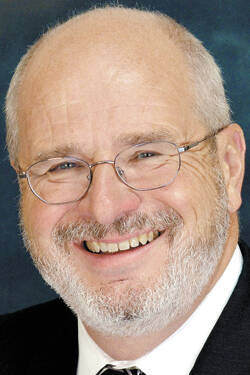It didn’t take long for the rest of the Kennedy family to react to the decision Robert F. Kennedy Jr. made to endorse Donald Trump for president.
“We want an America filled with hope and bound together by a shared vision of a brighter future, a future defined by individual freedom, economic promise and national pride,” five of the other surviving children of the late U.S. Sen. Robert F. Kennedy, D-New York, said in a statement.
“We believe in Harris and Walz. Our brother Bobby’s decision to endorse Trump today is a betrayal of the values that our father and our family hold most dear. It is a sad ending to a sad story.”
Another of RFK Jr.’s siblings, brother Max Kennedy, wrote an op-ed column for The Los Angeles Times that slammed his brother’s alignment with Trump.
“Trump was exactly the kind of arrogant, entitled bully,” Max Kennedy wrote, that the elder RFK would have opposed with all his might.
Still another RFK Jr. relative—cousin Jack Schlossberg, the grandson of the late President John F. Kennedy—attributed the endorsement to transactional considerations.
Alluding to his cousin’s public negotiations with both major-party presidential campaigns to secure a Cabinet spot, Schlossberg said in a social media post, “Been saying it for over a year—RFKjr is for sale, works for Trump. Bedfellows and loving it. Kamala Harris is for the people—the easiest decision of all time just got easier.”
The anger and the resentment in these exchanges were palpable.
In broadcast interviews, several of the extended Kennedy family members said they felt betrayed by their kinsman.
Because these exchanges of hard feelings featured the Kennedys—a family that has loomed large in the eyes of America and the world for nearly a century now—the harshness of the sentiments expressed has claimed a bright spotlight.
But the reality is that stories such as this one have played out in family after family in recent years.
How many of us now avoid any mention of politics at extended family gatherings for fear of provoking a permanent rupture with people we love? How many of us simply cannot understand the partisan allegiances of people who share our blood and lineage?
How many of us feel that every political conversation with certain siblings, cousins, parents, aunts, uncles or grandparents is like tiptoeing through a minefield, each step tentative because we worry an explosion might result from placing a foot wrong?
One of the tragedies of our times is that politics has come to figure so large in American life.
Our genius as a nation for much of our history has been our ability to compromise—to accommodate different points of view.
Much of that talent has been rooted in a core belief of ours—that the individual conscience is something not just to be preserved but treasured. This belief is at the heart of our conviction that human beings have rights that must be respected.
It is hard to adhere to a faith that individuals have rights that must be protected if we don’t believe in the basic worth of humanity, despite the foibles we all have.
That is why it is wise for us to treat each other’s flaws with a sense of charity.
I won’t claim that what RFK Jr. espouses makes sense to me. His arguments about the evil of vaccines, for example, I consider thoughtless drivel.
But it’s also possible he’s operating with something other than crass motives.
Much of his personal story—his history of drug abuse that includes a conviction on heroin charges—suggests he is a man possessing an acquaintance with pain.
It’s not difficult to understand why.
His uncle was murdered before he was even 10. Another assassin took his father’s life when the young RFK Jr. was in early adolescence.
He has had other disputes with his siblings. One of them is his belief that Sirhan Sirhan, the man convicted of murdering his father, was not responsible for the crime. That indicates junior’s grief may never have been assuaged.
One of the things Trump promised RFK Jr. was an in-depth re-examination of the deaths of both JFK and RFK the elder.
It’s possible that, for all the strangeness of his beliefs, RFK Jr. is just a wounded soul seeking a way to ease his own suffering.
Even famous people have feelings.
Even they are human.
John Krull is director of Franklin College’s Pulliam School of Journalism and publisher of TheStatehouseFile.com, a news website powered by Franklin College journalism students. The views expressed are those of the author only and should not be attributed to Franklin College. Send comments to [email protected].





